Does Schizophrenia get worse with age? Unfortunately, there is no cure for this. However, it can be effectively managed. Many people have successfully treated their symptoms. As a result, they can live more balanced and productive lives.
Schizophrenia can affect people of any age. Schizophrenia typically begins in late adolescence and the early 20s for men and the late 20s to early 30s for women.
People under the age of 12 and over the age of 40 are less likely to be diagnosed with Schizophrenia. It is possible to live well with Schizophrenia.
Antipsychotic medications are commonly used as the primary treatment for Schizophrenia. It will alleviate symptoms of Schizophrenia. They relieve schizophrenia symptoms by acting on the brain’s neurotransmitter systems.
If you or any of your family members are struggling with the issue of Schizophrenia, you may seek help from McGrim Health.
What is Schizophrenia?
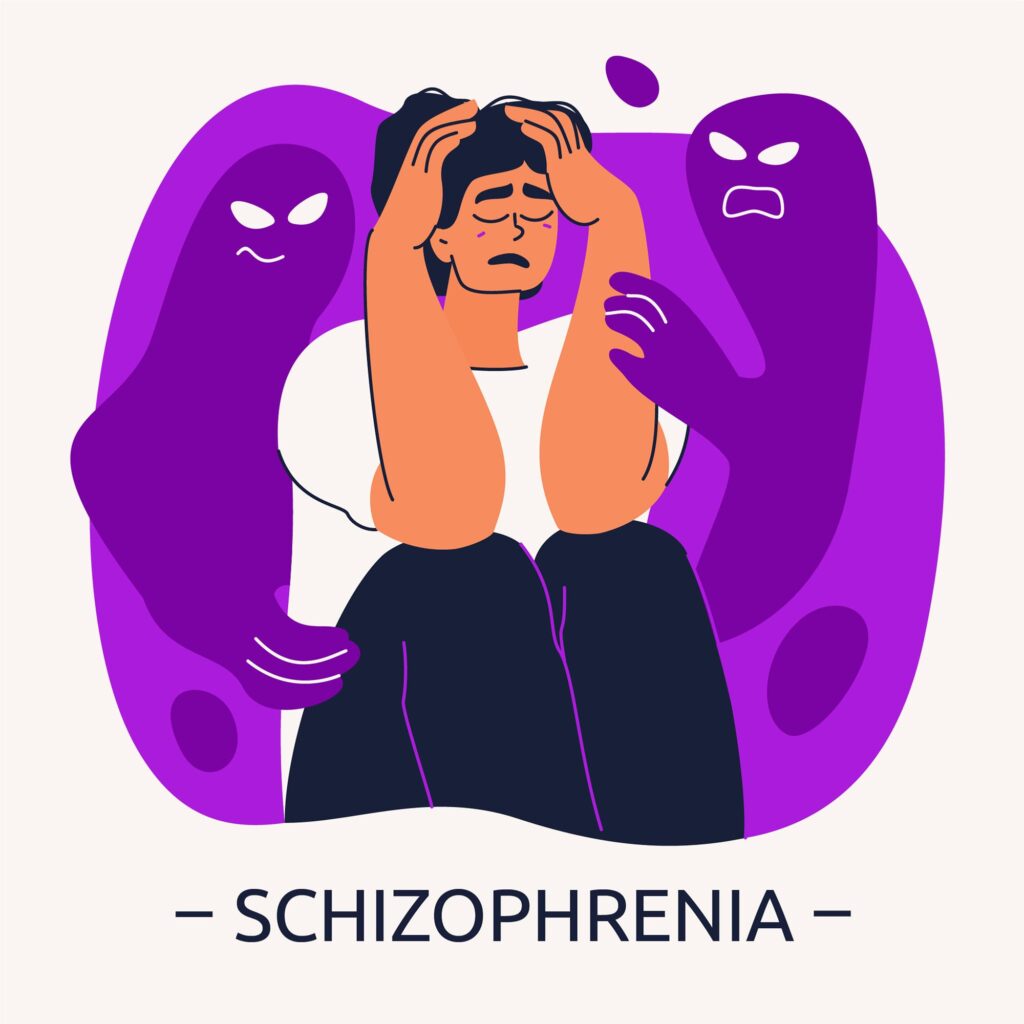
Schizophrenia is a disorder that impairs an individual’s mental and psychological functioning in daily life. People with Schizophrenia frequently struggle with emotion regulation, interpersonal relationships, decision-making, and clear thinking.
Likewise, geriatric Schizophrenia affects between 0.25% and 0.64% of all adults in the US. Chronic Schizophrenia can have long-term consequences for one’s quality of life.
Do you need more details about Schizophrenia and its effective treatment? If yes, contact us!
Schizophrenia And Old Age
Does Schizophrenia get worse as you age? Yes, it can worsen with time, and Schizophrenia typically begins in the late teens or mid-twenties.
Regarding a natural, biological onset, I believe it is uncommon for Schizophrenia to show up “at an old age.” Of course, other factors can mimic (or trigger) schizophrenia symptoms, such as drug use.
Several psychotropic side effects can have a disproportionate impact on the very young and elderly, and statistics indicate that some lethal antipsychotic medication side effects may fall into this category.
Schizophrenia In Elderly Symptoms
- Experienced delusions. These are erroneous notions that do not correspond to reality.
- These usually include seeing or hearing items that do not exist.
- Unorganized thinking and speech.
- Organized or unusual motor behavior.
- Symptoms were negative.
Does Schizophrenia Get Worse with Age?
People with Schizophrenia frequently experience a distorted reality, which has an impact on their relationships, social life, and other everyday activities such as work. Studies show the deformations include:
- Delusions.
- Experienced hallucinations.
- Unorganized language or movement.
- Difficulties with thinking and motivation.
According to data from several studies, people with Schizophrenia typically experience the most severe symptoms during their first episode of psychosis. It is followed by small midlife enhancements and a decrease later in life.
In addition, a 2016 study found that those who suffer from the disorder have smaller brains than those with the same chronological age. This may lead to cognitive and sentimental decline.
Parkinson’s And Schizophrenia
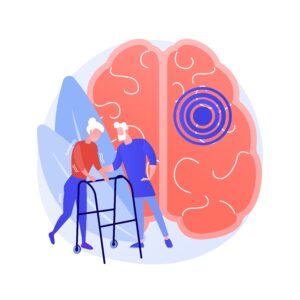
A recent study found that schizophrenia spectrum diseases increase the risk of creating Parkinson’s disease.
More than 3,000 people with Parkinson’s disease provided data for the study.
This finding is surprising given that the conditions have opposite consequences on the brain.
According to a new study, individuals with Schizophrenia are more likely to develop Parkinson’s disease later in life even though the two conditions affect the brain’s dopamine system differently.
Parkinson’s disease is a neurological situation in which the brain produces dopamine.
The Link Between Schizophrenia and Age
The link between Schizophrenia and aging is intricate and multifaceted. While some disorder characteristics, such as positive symptoms, may improve with age, others.
For example, negative signs and memory loss may persist or worsen over time.
The course of Schizophrenia varies greatly between individuals. The other variables include age of onset, gender, complications, and social support can all influence how the disorder advances.
Finally, early intervention and full treatment are critical for managing Schizophrenia and improving long-term outcomes.
Individuals with Schizophrenia can be helped to live fulfilling, successful lives by tackling the signs and providing support despite age.
Does Mental Illness Get Worse with Age?
Yes, if the mental illness is not treated, it may worsen over time.
According to research, untreated depression and bipolar disorder in middle-aged men and women can lead to dementia in old age.
Nevertheless, mental health decline is not a normal part of aging. Adults are more likely than older people to suffer from mental health disorders.
BPD is not only one of the most painful mental illnesses, but it is also exacerbated by stigma and misinterpretations by others.
Fortunately, borderline personality disorder is treatable, and the suffering does not have to be in definition.
Wrapping It Up
Does Schizophrenia get worse with age? The answer is yes when left untreated!
Schizophrenia poses significant challenges to the health and wellness of older adults. In some cases, it raises the risk of dying earlier.
You could have health issues affecting your heart, metabolism, lungs, or mobility. You may also have to deal with depression and anxiety.
Even so, you can reduce your risks and improve your standard of living. One example is developing strong relationships with your family, friends, and community. Another option is to schedule annual health screenings.
You can also maintain your health daily by eating well, exercising regularly, and avoiding tobacco. Possibly, the most important thing you can do to enhance your perspective is to stick to your schizophrenia drugs.
FAQs
What happens to people with Schizophrenia as they get older?
Positive signs of Schizophrenia include hallucinations and delusions, which are likely to improve with age. In addition, as you get older, self-medication through substance abuse becomes less common.
At what age does Schizophrenia get worse?
The studies determined that men with Schizophrenia lose a median of 15.9 years of life, while women lose approximately 13.6 years.
How long do people with Schizophrenia live?
Alcohol and drug use can exacerbate schizophrenia symptoms and lead to other complications. This involves using prescription drugs for purposes other than those advised.
What causes Schizophrenia to get worse?
Another associated problem is the concept of “schizophrenic burnout.” A deficit state and the absence of positive symptoms characterize it.

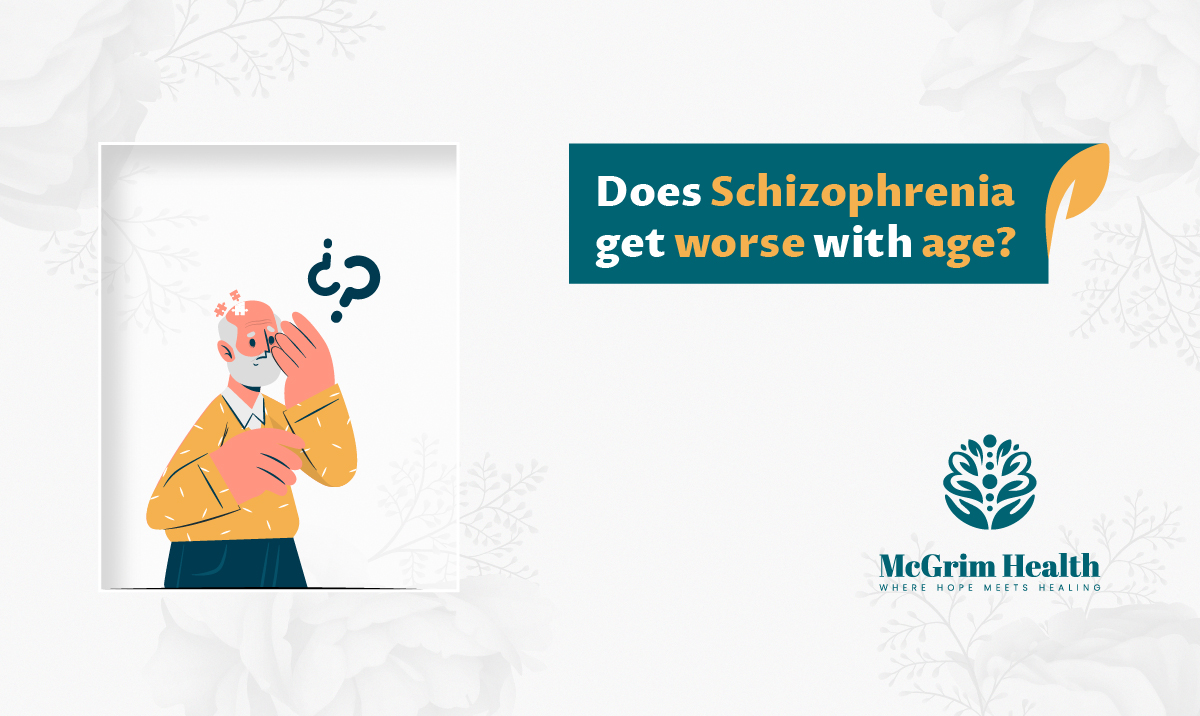
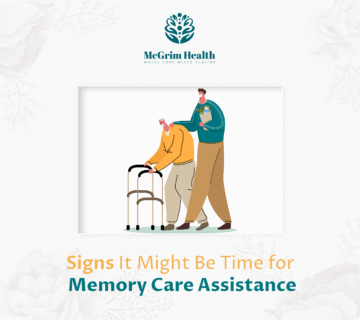

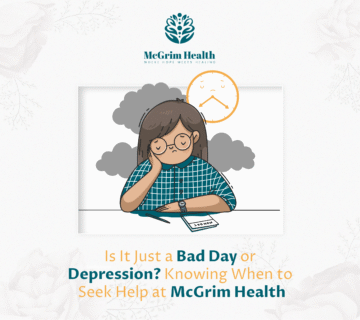
No comment